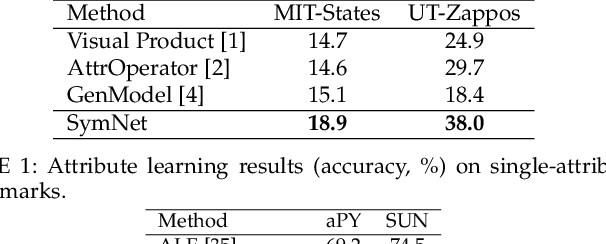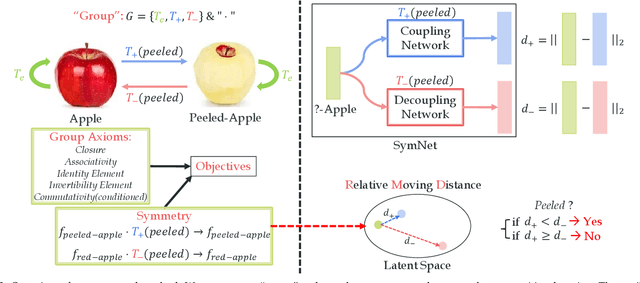Learning Single/Multi-Attribute of Object with Symmetry and Group
Paper and Code
Oct 09, 2021



Attributes and objects can compose diverse compositions. To model the compositional nature of these concepts, it is a good choice to learn them as transformations, e.g., coupling and decoupling. However, complex transformations need to satisfy specific principles to guarantee rationality. Here, we first propose a previously ignored principle of attribute-object transformation: Symmetry. For example, coupling peeled-apple with attribute peeled should result in peeled-apple, and decoupling peeled from apple should still output apple. Incorporating the symmetry, we propose a transformation framework inspired by group theory, i.e., SymNet. It consists of two modules: Coupling Network and Decoupling Network. We adopt deep neural networks to implement SymNet and train it in an end-to-end paradigm with the group axioms and symmetry as objectives. Then, we propose a Relative Moving Distance (RMD) based method to utilize the attribute change instead of the attribute pattern itself to classify attributes. Besides the compositions of single-attribute and object, our RMD is also suitable for complex compositions of multiple attributes and objects when incorporating attribute correlations. SymNet can be utilized for attribute learning, compositional zero-shot learning and outperforms the state-of-the-art on four widely-used benchmarks. Code is at https://github.com/DirtyHarryLYL/SymNet.
 Add to Chrome
Add to Chrome Add to Firefox
Add to Firefox Add to Edge
Add to Edge